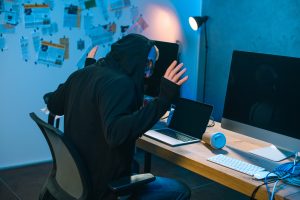What Are Your Legal Rights When It Comes To The Internet?
- Comments Off on What Are Your Legal Rights When It Comes To The Internet?

When it comes to the internet, you have to remember that you still have legal rights! We all have the right to remain silent and the right against illegal search and seizure. In law enforcement investigations our right to privacy is protected by the constitution, however, what we share over social media is not only public, it “speaks for us” and is therefore fair game for law enforcement to use in investigations, convictions, and during trial.
There is no right to privacy in public places. What we share on social media is equal to walking down the street, entering a store, going to school, or a public park. Lawmakers can heavily rely on social media to monitor suspects, support investigations, and eventually offer what they find into evidence during trial. In general, police are allowed to use what they can observe in plain sight to justify a warrant, enter a home, or convict a suspect. That means all that we post on social media can be used against us. In addition, if law enforcement contacts Instagram, Twitter, or Facebook concerning your account, the social media companies are obligated to share information involving a criminal investigation.
Don’t let the false sense of internet privacy get in the way of your rights. It is not just pictures and post that “speak for us”. Temporary pictures or videos are not actually temporary, they can be screen shot or saved by others. Even if you think you aren’t sharing a “meaningful” post or picture social media sites also serve as a timeline of your activity and your whereabouts. What’s more, when you sign up for social media accounts you click a contract verifying that what you post is true.
Even though much of the internet is public, your rights to privacy are intact when your information is not public. This includes your non-public password protected accounts, as well as your computer and cell phone. You do not have to turn electronics or password protected private information over to law enforcement without a proper warrant or subpoena, including your cell phone. When law enforcement does obtain a warrant or subpoena to search your electronics courts have ruled that a fishing expedition is not allowed, law enforcement must be specific about what they are looking for and may only use evidence that supports the warrant.
Don’t be overwhelmed if social media or internet evidence is being used against you. Experienced council knows what can and cannot be used in court and can assist you with your case.
At Bixon Law, we work cases with our client’s future in mind. We are passionate about keeping our clients informed about the law and diligently work on their behalf to resolve their case with the best possible outcome. If you or a loved one has questions, please call us at 404-551-5684 for a free consultation today.









